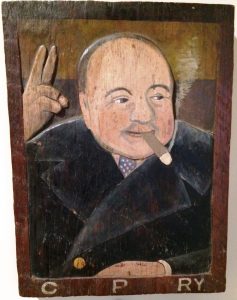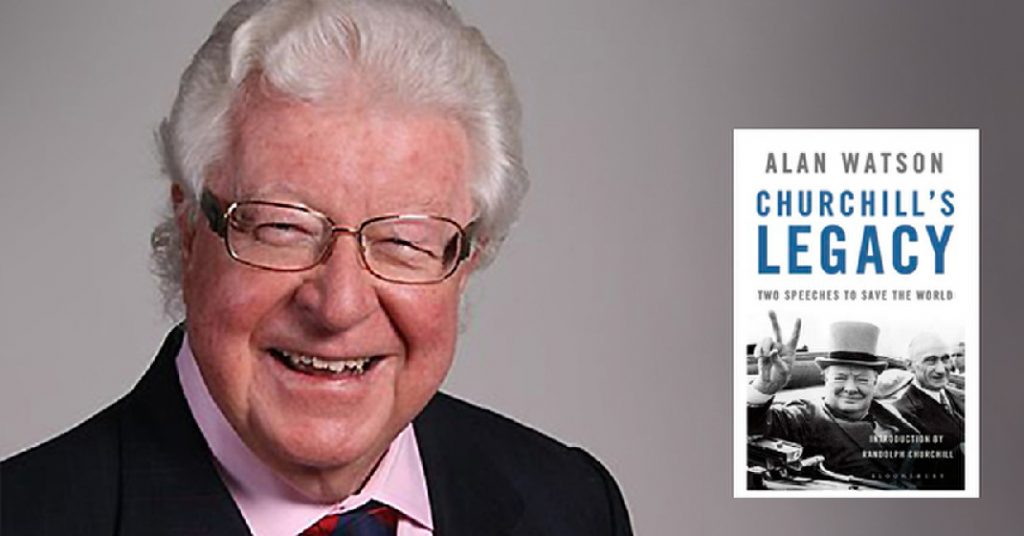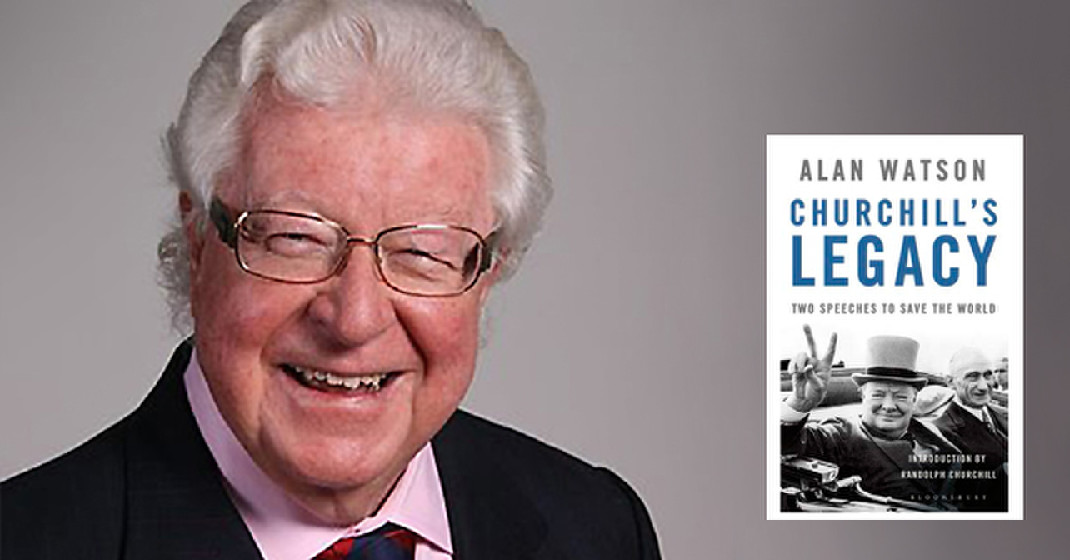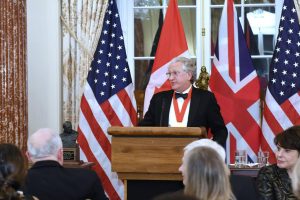
Bulletin #101 - Nov 2016
Double Indemnity

November 3, 2016
Alan Watson, Churchill’s Legacy: Two Speeches to Save the World
London and New York: Bloomsbury, 2016. 204pp.
Review by PETER CLARKE

Winston Churchill, like many old men, very much enjoyed the sound of his own voice. Unlike most of them, he still had some important things to say at seventy-one, his age in 1946 when he delivered two famous speeches: one in February at Fulton, Missouri, and the other in Zurich, Switzerland, in September of the same year. He had recently been voted out of power in Britain but was probably the most famous person in the world at the time and was now free to accept invitations to countries less afflicted than Britain by postwar privations.
The Fulton speech was titled “The Sinews of Peace” but in fact it recognized the beginning of a cold war that was to polarize the world for most of the next half century. It is remembered in particular for its graphic comment on the state of Europe: “From Stettin in the Baltic to Trieste in the Adriatic, an iron curtain has descended across the Continent.” The Zurich speech projected a more optimistic view, but one equally striking, in saying that “we must re-create the European family in a regional structure called, it may be, the United States of Europe.”
One of our debts to Alan Watson (a member of the House of Lords) in producing this slim but fascinating book is that he gives us the full text of both speeches in an easily accessible form. Each of them has been selectively quoted in the course of the last seventy years and, at the very least, it is good to read them for ourselves and see what all the fuss was about. Churchill’s secretary, accompanying him to Fulton to type out last-minute amendments, wrote home to her parents after the speech’s delivery: “it hasn’t half kicked up a shindig here.” (p. 83) True enough, Churchill was taken by many Americans to be stirring up trouble with the Soviet Union; and President Truman, who had gone back to his home state in the company of the honoured visitor, conveniently found that he had no memory of being shown the mimeographed text in advance amid the late-night drinks that they had enjoyed on the long train journey from Washington to Missouri.

2024 International Churchill Conference
As Watson carefully documents the story, Churchill was somewhat isolated—but not disconcerted or deterred from going ahead with the Zurich speech later in the year. Here too the cheering crowds with which he was thronged on the day gave a warmer welcome than the international politicians who subsequently scrutinised his published words.
One of the most telling points that Lord Watson’s own punctilious scrutiny of many of the original documents in the Churchill Archives brings out is the difference between the nuanced phrases that Churchill actually used and the inevitably cruder headlines that were generated. Moreover, each speech had to stand the test of time. The Fulton speech, once thought so provocative and alarming, came to be seen as a sobering assessment of the impact of Soviet ambitions in remaking the postwar world. The Zurich speech has likewise been selectively mined over the years, especially by those who wish to claim Churchill as one of the founding fathers of the subsequent European Union.
Yet Watson is surely right to insist that its central message about “the European family” did not commit Britain to direct participation. “I am now going to say something that will astonish you,” is how Churchill, the well-practised orator, led up to his most challenging proposal: “The first step in the re-creation of the European family must be a partnership between France and Germany.” (p. 118) And the role of his own country? As at Fulton, so in Zurich, he voiced the further aspiration for “the British Commonwealth of Nations” (as it was known in those days) to achieve a “special relationship” with the United States. (p. 72) This little book will be welcomed by anyone who wants to understand what Churchill really said in staking his claim to continuing influence in the postwar world.
Peter Clarke’s new book, The Locomotive of War: Money, Empire, Power and Guilt will be published in February by Bloomsbury in London and New York.
Subscribe
WANT MORE?
Get the Churchill Bulletin delivered to your inbox once a month.




